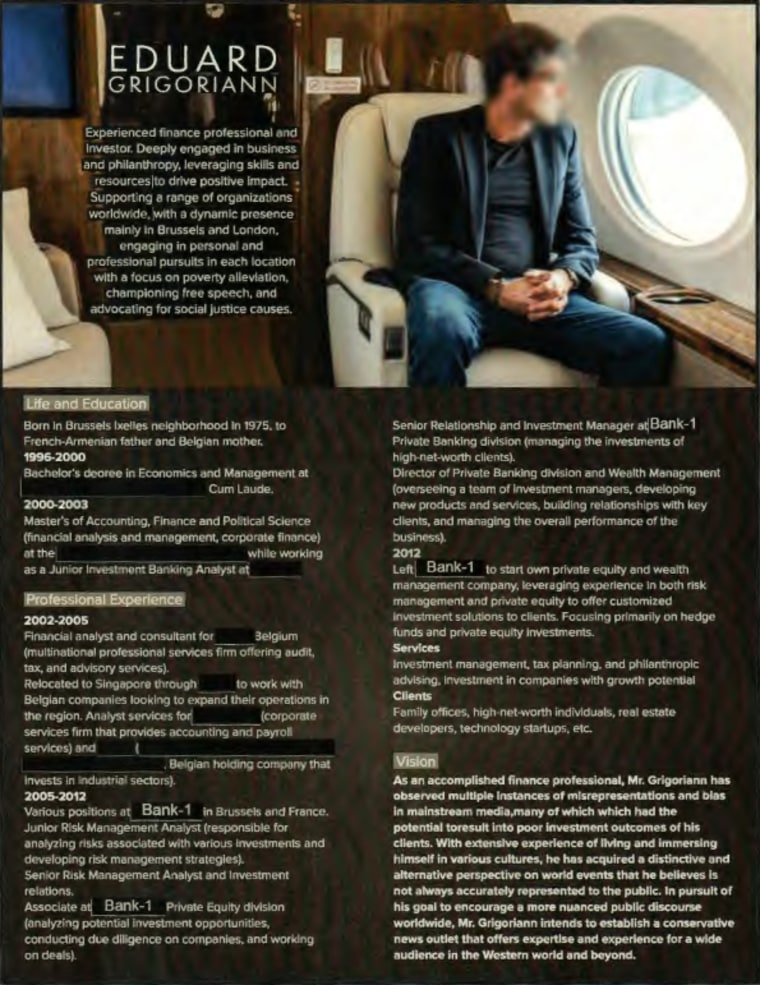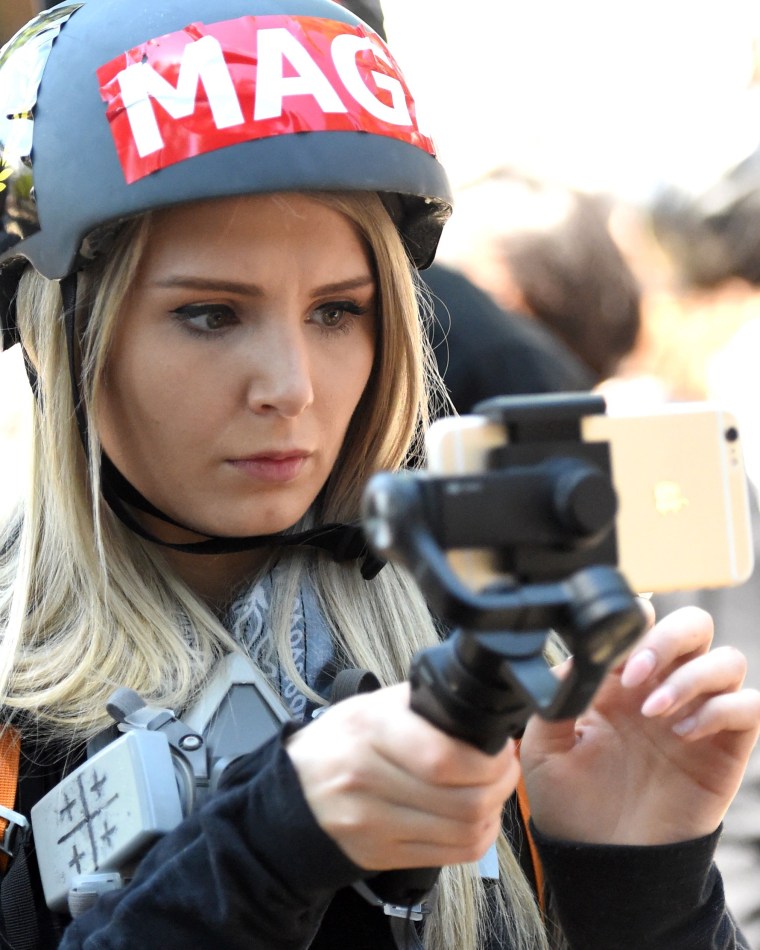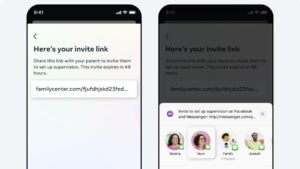The video introducing Tenet Media hit many common conservative tropes: Mainstream media couldn’t be trusted. Free speech was under attack. Independent and uncensored voices were sorely needed.
It featured the six commentators who would be the faces of the operation, already some of the most-followed voices in the increasingly crowded and influential world of online conservative punditry. Over a dramatic electronic music track, each of them offered a brief reason why Tenet was needed now more than ever.
“Maybe they take us down individually,” said Matt Christiansen, a conservative YouTuber and podcaster, in the video. “It’s a lot harder to do when we’re grouped together in this way.”
Less than a year after that video was posted to YouTube, where it still has fewer than 9,000 views, Tenet has found itself at the center of a major U.S. government action to crackdown on Russian interference in the 2024 election. Prosecutors alleged two employees of the Russia-backed media network RT funneled almost $10 million to six commentators through a company that appears to be Tenet.
Though the media company and the commentators went unnamed, their details match those of Tenet and Dave Rubin, Tim Pool, Benny Johnson, Lauren Southern, Tayler Hansen and Christiansen.
An NBC News review of Tenet’s many videos combined with details from the government’s two indictments illustrate how the company amplified conservatives who had already embraced many talking points favored by former President Donald Trump and Russia, in line with the country’s broader propaganda goals. The alleged tactics would represent an evolution in Russia’s previous attempts to meddle with American voters’ perceptions of an upcoming election, marked in 2016 by crude but effective text posts on Twitter and Facebook. With Tenet, Russia appears to have updated a decades-old strategy of laundering propaganda through seemingly independent actors by targeting some of the most popular creators of the polarized U.S. political system.
Still, the plan struggled. Tenet posted nearly 2,000 videos that got more than 16 million views on YouTube since November 2023, according to the indictment. The company was competing for attention in an oversaturated online space and among an electorate that, after years of consuming hyper-polarized content online, tends to seek and be served information that reinforces their own beliefs. As Tenet failed to rack up significant view counts even with its big-name commentators, frustrations spilled out from company officials that were captured in parts of the indictment.
Five of those commentators have issued statements, some declaring themselves the victims and each saying that they were not knowingly part of the Russian scheme. The sixth, Southern, has not issued a statement or responded to requests for comment from NBC News. The six commentators did not respond to questions Thursday on how they believed they were deceived and whether they plan to give up the money. Tenet and its founders have yet to issue any statements and have not responded to requests for comment sent by NBC News.
The indictment noted that at least two of the creators wrapped up in the Russian operation had been “deceived” by the founders of Tenet. Those founders also went unnamed, but business records show Tenet was founded by a married couple: Liam Donovan, a video producer, and Lauren Tam, a video creator for The Blaze and a contributor to Turning Points USA, professionally known as Lauren Chen.
“While the views expressed in the videos are not uniform, the subject matter and content of the videos are often consistent with the Government of Russia’s interest in amplifying U.S. domestic divisions in order to weaken U.S. opposition to core Government of Russia interests, such as its ongoing war in Ukraine,” prosecutors said in the indictment.
YouTube deleted Tenet’s channel on Thursday. A spokesperson told NBC News: “Following an indictment from the US Department of Justice and after careful review, we are terminating the Tenet Media channel and four channels operated by its owner Lauren Chen as part of our ongoing efforts to combat coordinated influence operations.”
‘Influencers are patriots’
Bret Schafer, a senior fellow at the German Marshall Fund who studies disinformation, noted that Russia’s use of American messengers — both covert and overt — is a tried-and-true tactic. But he added that the Kremlin has rarely — if ever — been able to tap people with the kinds of followings that Pool, Rubin and others had already amassed.
Schafer said the long history of Russia’s influence campaigns in America involved financing news organizations or content creators who produce content that’s “beneficial to Russia.”
“That does not mean that the content actually is pro-Russian,” Schafer said. “And I think that’s a key point. Often you’ll find the people justify taking the money, when they are aware that they’re getting money from Russia, by saying, ‘These are my beliefs. I’m not being told what to say.’ and it’s believable because Russia is just quite good at recruiting talent, finding the divisive, influential person who’s maybe an anti-imperialist, or whose worldview aligns with Russia, and let’s find a way to support them.”
Schafer’s description of those tactics and aims matched those in internal company documents from Russian companies charged with operating the disinformation campaign known as “Doppelganger,” according to exhibits unsealed in a separate federal case on Wednesday.
Russia’s effort to influence Americans before the election focused on the goal of securing a victory for Donald Trump in 2024, by exploiting political polarization according to the internal documents, and specifically instructed operatives to spread the view “that the US should target their effort towards addressing its domestic issues instead of wasting money in Ukraine and other ‘problem’ regions.”
In the planning documents, Russian operatives said it was pointless to engender pro-Russian sentiment: “There is no point of justifying Russia and no one to justify it to. All American politicians and influencers are patriots and supporters of American supremacy.”
But, the operatives wrote, there was benefit in exploiting conservative fears including concerns about online censorship, an encroachment on conservative rights, and a decline in the standard of living and a fear of losing the “American dream.” The documents suggested specific topics including poverty, crime, inflation, unemployment for white Americans, privileges for people of color, “perverts,” and the disabled, lies by the media and the Democratic party, immigration, and Ukraine.

The Tenet Media commentators’ videos, while not associated with the Doppelganger campaign, tackled those exact topics, spreading to their millions of collective subscribers the very messages Russia hoped they would.
It’s not clear how much due diligence the six pundits did before agreeing to take what prosecutors now say was Russian money from a fictional wealthy persona named “Eduard Grigoriann”. At least one of the six commentators requested more information on Grigoriann and, after receiving a fake one-page profile, agreed to work with Tenet, according to the indictment.
‘No holds barred’
In the 10 months after its launch, the creators of Tenet media would release hundreds of videos.
Many focused on the election, all seemingly through a pro-Trump lens, often denigrating current president Joe Biden and vice president and current Democratic candidate Kamala Harris, painting former president Trump as a victim of an unfair mainstream media and the so-called deep state, and spreading unfounded conspiracy theories.
Even in its relatively short time in existence, Tenet had already made inroads with the Republican party.
Johnson, a former chief creative officer of the conservative activist group Turning Point USA, in particular enjoyed special access to the country’s most powerful political figures,. Johnson interviewed Donald Trump Jr. for the channel in February, the Trump campaign’s deputy director of communications Caroline Sunshine in August, and twice interviewed Lara Trump, the former president’s daughter-in-law and current co-chair of the Republican National Committee, in March and June. Trump spokeswoman Karoline Leavitt popped up in a Tenet video, praising the “fantastic, loyal audience” Johnson had created.
Other videos produced for Tenet media featured elected GOP officials. In one, Sen. Ted Cruz discussed his thoughts on Bud Light’s “woke marketing executives” in November while sitting in the back of a vehicle with Johnson.
Asked by NBC News about appearances that members of the Trump family and campaign had made in videos hosted by a company that authorities say was Russia funded, Trump campaign spokeswoman Leavitt sent a link to two Trump posts on his social media website, one of which said that Vice President Kamala Harris and the Justice Department were “trying to interfere in and suppress the Election in favor of the Democrats by resurrecting the Russia, Russia, Russia Hoax, and trying to say that Russia is trying to help me, which is absolutely FALSE.” The other Trump post said that the only way to “save our Elections, our System of Justice, our Constitution, and our FREEDOM” would be by electing him in November.
Some of the channel’s videos hit themes shared by Russia and the Republican Party: undermining confidence in U.S. elections.
The RNC’s main mission should be election integrity, Johnson said in one Tenet video from March, before introducing Scott Presler, a conspiracy theorist who headed a group that helped plan “stop the steal” rallies before the Jan. 6 attack on the U.S. Capitol, as well as chaired a group called Gays for Trump.

“Mass Voter Fraud CONFIRMED from Coast-To-Coast!” read the title of one video Johnson created for Tenet eight months ago, which featured an interview with Kari Lake. “The Fed LIES of January 6th EXPOSED,” read another, featuring an interview with Jan. 6 defendant Jacob Chansley, better known as QAnon Shaman. Johnson’s background for both of those Tenet videos featured an image of Trump’s mugshot from his Georgia election interference case.
Others railed against progressive causes in the culture wars. “Fat Acceptance: Has It Gone Too Far?,” and “EXPLICIT Books OK For Schools?” contributor Tayler Hansen wondered in his November man-on-the-street videos, a hallmark of his collection. Lauren Southern, once known as the alt-right’s most notable female propagandist, had some of the channel’s most popular videos, including a documentary exploring the difficulty of finding love in the digital age and a video opining on the Great Replacement, a white nationalist conspiracy theory alleging progressive politicians are encouraging illegal immigration to win elections.
They posted about race, LGBTQ issues, the Israel Gaza war, censorship of conservatives, the “crumbling” of society, and stoked baseless fears about what they claim is rampant violent crimes by migrants. And they posted about Ukraine, framing its fight against Russian aggression as a waste of money for Americans.
Struggling for traction
Some of Tenet’s operations appeared to have been directed at least in part by RT employees, according to details from the indictment.
Alongside the popular commentator’s videos, employees for Tenet were posting news clips and short Tik-Tok style reels from creators on other platforms. The indictment noted these videos were possibly posted directly by Russian operatives employed by RT.
Russian operatives from RT also monitored Tenet’s internal communications and edited content, according to the indictment. That included Discord channels for individual contributors and their teams, channels that discussed production-related matters, pitches and concepts.
But even with millions of dollars and well-followed commentators, the indictment showed that the company struggled for traction, highlighting that even some of the more advanced foreign influence campaigns are still susceptible to the vagaries of the internet. Tenet’s YouTube channel counts more than 315,000 subscribers, but many of its videos received fewer than 10,000 views. The indictment alleges that one of the founders acknowledged that it would be “very hard” to “recoup” the money they were paying based on ad revenue alone.
Struggling for traction, Tenet tried to capitalize on the distribution channels of their commentators to spread content, with one of the RT employees pushing one of the founders to pressure the commentators to share Tenet content on X, according to the indictment. “At least one share per day. Not one share per week,” the RT employee demanded. Sharing Tenet content was not part of the commentators’ contracts according to the indictment, which didn’t say whether the requests had been obliged.
The indictment gives insights into how Tenet employees took marching orders from RT.
In February, there was a debate over posting a video featuring Tucker Carlson touring a Russian grocery store, which was filmed when Carlson interviewed Putin in February. Carlson was not named in the indictment.
“They want me to post this,” a Tenet employee referred to as Producer-1 wrote in their internal chat, but “it just feels like overt shilling.” When one of the founders replied that the other founder “thinks we should put it out there,” Producer-1 gave in, writing “alright I’ll put it out tomorrow.”
In March, the RT employee asked one of the founders to get a commentator to cover the Moscow terror attack with “a Ukraine/U.S. angle.” The next day, the Tenet founder said she had spoken with one of the commentators.
“[H]e’s happy to cover it,” the founder wrote.
Brandy Zadrozny is a senior reporter for NBC News. She covers misinformation, extremism and the internet.
David Ingram
and
Adiel Kaplan
contributed
.





